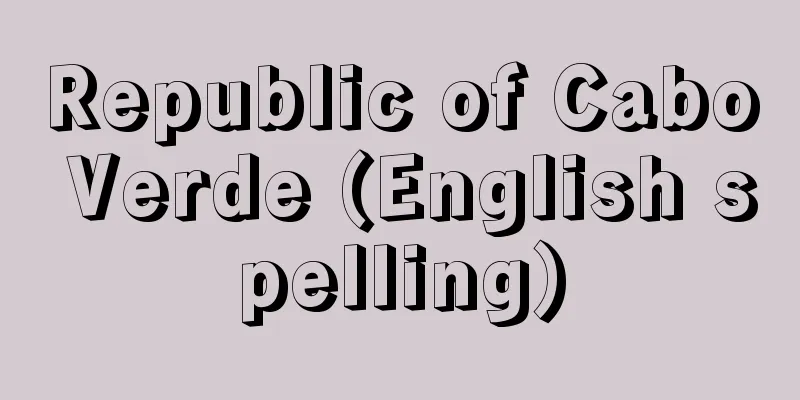Kaoru Ota

|
Labor activist. Born in Hayashida Village, Okayama Prefecture (now Tsuyama City). Graduated from the Department of Applied Chemistry, Osaka Imperial University. Joined Ube Nitrogen Co., Ltd. in 1938 (Showa 13), and was the head of the sulfuric acid section at the time of the end of the war. In 1946 (Showa 21), he became the head of the labor union at the same company. He then established himself as a leader who "emphasized the honest demands and feelings of ordinary workers." Politically, he belonged to the left-wing Socialist Party. In 1950, he founded the Joint Chemical Workers' Union, and remained in the position of chairman until 1979. In 1955, when Akira Iwai became Secretary-General of the Sohyo Union, he became vice-chairman of the Sohyo Union, and from 1958 to 1966, he served as chairman, forming the "Ota-Iwai Line." During this time, he created and established the spring labor offensive method. In an attempt to unite workers with clear, simple, and powerful words, since the "first strike since Jinmu" in 1956, he has continued to blow the "Ota trumpet" with slogans such as "European wages," "Young people, hustle," and "10,000 yen for everyone," and has had a major impact on spring labor offensives. He was awarded the Lenin Peace Prize in 1964. He ran for the Tokyo gubernatorial election in 1979 but lost. After that, he was critical of the labor movement that formed the Rengo. [Shoji Arakawa] "In the Struggle: 25 Years of the Labor Movement" by Kaoru Ota (1971, Aoki Shoten) "The End of the Spring Offensive: The Labor Movement Under Low Growth" by Kaoru Ota (1975, Chuo Keizaisha) Source: Shogakukan Encyclopedia Nipponica About Encyclopedia Nipponica Information | Legend |
|
労働運動家。岡山県林田村(現津山市)出身。大阪帝国大学応用化学科卒業。1938年(昭和13)宇部窒素入社、終戦当時は硫酸課長。46年(昭和21)同社労働組合長。その後、「一般労働者の率直な要求、気持ちを重視する」指導者として自己を確立してゆく。政治的には左派社会党に属した。50年合化労連を結成、79年まで委員長の座にとどまる。55年岩井章(あきら)総評事務局長誕生とともに総評副議長、58年から66年まで議長を務め「太田・岩井ライン」を構成、この間、春闘方式を創設、定着させた。簡単明瞭(めいりょう)、迫力あることばで労働者を団結させようと、56年の「神武以来のストライキ」以来、「ヨーロッパ並みの賃金を」「青年よハッスルせよ」「だれでも1万円」など「太田ラッパ」を吹き続け、春闘に大きな影響を与えてきた。64年度レーニン平和賞受賞。79年東京都知事選に立候補したが落選。その後は連合を結成した労働界の動きには批判的であった。 [荒川章二] 『太田薫著『闘いのなかで――労働運動25年』(1971・青木書店)』▽『太田薫著『春闘の終焉――低成長下の労働運動』(1975・中央経済社)』 出典 小学館 日本大百科全書(ニッポニカ)日本大百科全書(ニッポニカ)について 情報 | 凡例 |
Recommend
Pei Wen-zhong (English spelling)
Born January 19, 1904 in Hebei, [Died] September 1...
Gaffel Films
…After the war, he was often rumored to be retiri...
shuhra
...There are many cases where the title of a job ...
Hikone Castle
Hirayama Castle was located in Hikone City, Shiga ...
Treaty of Eulsa
...A pro-Japanese bureaucrat in the late Korean c...
Illaenus
...The evolutionary trend is known to be microtau...
Royalists
The supporters of the King in the Puritan Revolut...
diner (English spelling)
…the most important meal of the day, or a meal wi...
Rosenberg
American literary and art critic. Born in New York...
Khufu - Khufu (English spelling)
Date of birth and death unknown. Second king of t...
Turnix
...A species of the family Ploceidae in the order...
Townshend Acts
Four Acts passed by the British Parliament between...
"Aizu Fudoki"
...120 volumes. A revised and expanded version of...
Pre-judicial disposition
When a crime or delinquency is committed, the trad...
Barlow, T.
...Scurvy, a disease caused by vitamin C deficien...









